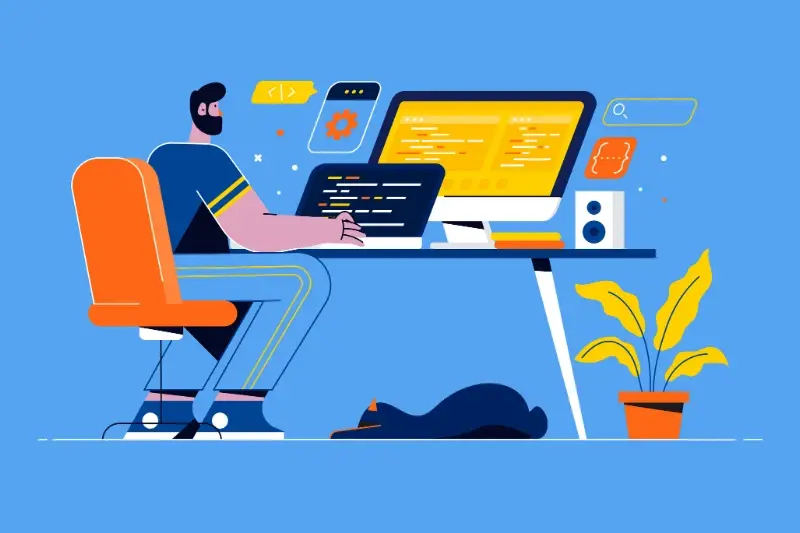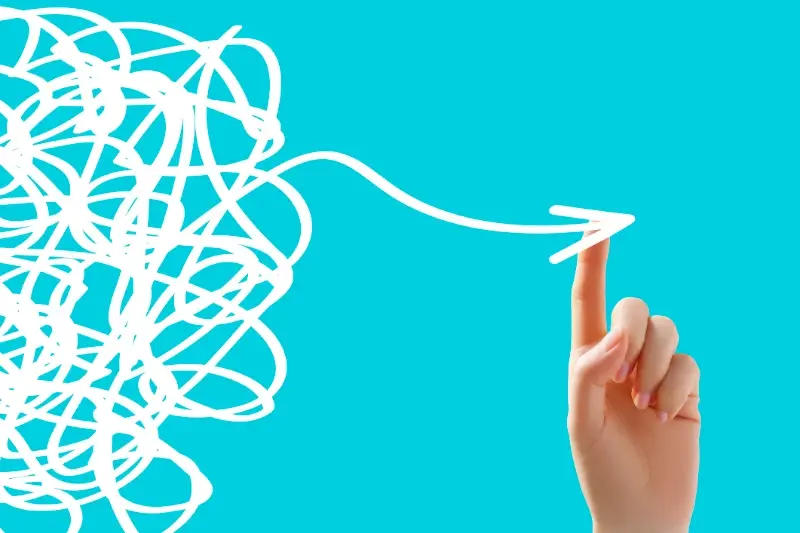Developer Communication Skills: Why They Make or Break Your App
Have you ever wondered why some app projects feel like a smooth ride whilst others turn into complete disasters? After building mobile apps for over eight years, I can tell you the answer isn't always about coding skills or technical expertise. The real game-changer is something much simpler—and often overlooked.
When clients come to us looking for app developers, they usually focus on the technical stuff first. Can they code in Swift? Do they know React Native? Have they built apps like ours before? These are good questions, don't get me wrong. But here's what I've learned from countless projects: the best developers aren't just coding wizards—they're brilliant communicators too.
The most expensive app isn't the one with the highest development cost; it's the one that fails because nobody understood what was being built
Poor developer communication skills can turn your dream app into a nightmare faster than you'd think. Missed deadlines, budget blowouts, features that don't work as expected—I've seen it all happen when communication breaks down. On the flip side, developers who can explain complex technical concepts in simple terms, ask the right questions, and keep you updated regularly? Those projects tend to succeed, even when technical challenges pop up along the way. That's why understanding developer communication skills should be right at the top of your developer selection criteria, alongside all those technical requirements.
What Makes a Great App Developer
When you're hunting for the right app developer, it's easy to get caught up in the technical stuff. Can they code in Swift? Do they know React Native? Have they built apps that look amazing? These questions matter, but they're not the whole story—not even close.
The best developers I've worked with share one thing that sets them apart from everyone else: they can explain complex technical problems in simple terms. They don't hide behind jargon or make you feel stupid for asking questions. Instead, they break things down so you actually understand what's happening with your project.
The Skills That Actually Matter
Great app developers combine technical ability with strong people skills. Here's what to look for:
- They ask questions about your business goals, not just technical requirements
- They explain problems and solutions clearly without overwhelming you with technical details
- They respond to messages promptly and keep you updated on progress
- They're honest about timelines and potential challenges upfront
- They listen to your feedback and incorporate it thoughtfully
- They can work with your team members who aren't technical
Technical Skills Are Just the Starting Point
Don't get me wrong—technical skills absolutely matter. Your developer needs to write clean code, understand platform guidelines, and solve complex problems. But here's the thing: most experienced developers have solid technical skills. What separates good developers from great ones is how they work with people.
A developer who can't communicate effectively will cost you time, money, and probably a few headaches along the way. They might build exactly what you asked for, but miss what you actually needed because they never bothered to understand your business properly. This is where presenting your app idea clearly to developers becomes crucial for project success.
The Hidden Cost of Poor Communication
Poor developer communication skills don't just create awkward meetings—they cost real money. I've seen projects spiral from £20,000 budgets to £60,000 disasters simply because the development team couldn't explain what was happening or ask the right questions when things went wrong.
When developers can't communicate properly, everything takes longer. Simple changes become complex negotiations. Bug reports turn into guessing games. Client feedback gets lost in translation, leading to features being built incorrectly—sometimes multiple times. Each miscommunication adds weeks to your timeline and pounds to your bill. Understanding how developers can control costs starts with establishing clear communication channels from day one.
The Ripple Effect of Miscommunication
App project management becomes a nightmare when communication breaks down. Developers might build the wrong features because they didn't understand requirements. They might miss deadlines because they were too embarrassed to admit they were stuck. Or worse, they might deliver something completely different from what you expected because nobody clarified the brief properly.
The knock-on effects are brutal. Your marketing launch gets delayed. Your investors lose confidence. Your competitors get ahead while you're still fixing preventable problems. I've watched businesses lose entire market opportunities because their development team couldn't communicate a simple technical limitation early enough.
When Technical Meets Commercial Reality
The most expensive communication failures happen when developers can't translate technical constraints into business language. They might know your app idea won't work on older phones but fail to explain the commercial impact. They understand the security risks but can't articulate why you need to change your data strategy.
Always test developer communication skills during interviews by asking them to explain a technical concept in simple terms—their ability to do this will save you thousands later.
Good communication isn't just nice to have in app development—it's your insurance policy against project disasters and budget blowouts.
Technical Skills vs People Skills
Here's the thing about finding the right developer—you need both technical brilliance and solid communication skills. But if I had to pick one over the other? Communication wins every time. I know that sounds mad when you're paying someone to write code, but hear me out.
A developer with average technical skills but excellent communication will tell you when they're stuck, ask the right questions, and keep you updated on progress. They'll admit when something's beyond their expertise and suggest bringing in help. More importantly, they'll understand what you're actually trying to build—not just the technical requirements, but the business goals behind them.
On the flip side, a technically gifted developer who can't communicate properly will leave you in the dark. They might build something that works perfectly from a code perspective but completely misses the mark for your users. They'll disappear for weeks without updates, make assumptions about features, and deliver something that technically functions but doesn't solve your actual problem.
What This Looks Like in Practice
When evaluating developers, look for this balance:
- Technical competence that matches your project complexity
- Ability to explain technical concepts in plain English
- Proactive communication about challenges and solutions
- Questions about your business goals, not just technical specs
- Regular progress updates without being prompted
The sweet spot isn't necessarily the most technically advanced developer you can find. It's someone who combines solid technical foundation with the communication skills to understand your vision and keep you informed throughout the build process. When hiring app developers, consider both technical expertise and communication abilities equally.
Red Flags in Developer Communication
After working with hundreds of developers over the years, I've spotted some clear warning signs that signal communication problems ahead. These red flags often appear during initial conversations and can save you months of frustration if you know what to look for.
The biggest red flag? When a developer dismisses your questions or makes you feel stupid for asking them. Good developers understand that not everyone speaks their language—they should be patient and willing to explain things in simple terms. If they get irritated when you ask for clarification, that's a problem that will only get worse once the project starts.
Technical Jargon Overload
Watch out for developers who bombard you with technical terms without checking if you understand. Yes, they need to demonstrate their expertise, but they also need to communicate effectively. A skilled developer can explain complex concepts in ways that make sense to non-technical people.
The best developers I've worked with can explain their most complex solutions to a five-year-old and make it sound interesting
Poor Response Times and Vague Updates
Communication red flags extend beyond just how someone speaks—it's also about when and how often they respond. Developers who take days to reply to simple questions or consistently provide vague updates like "working on it" or "nearly done" will likely cause project delays. Pay attention to their communication patterns during the selection process; this behaviour rarely improves once work begins.
Trust your instincts during initial conversations. If something feels off about how a developer communicates, it probably is. Remember, you'll be working closely with this person for weeks or months—make sure it's someone you can actually work with.
Building Strong Communication Habits
Getting developers to communicate well isn't something that happens overnight—it takes practice and the right habits. I've worked with hundreds of developers over the years, and the ones who succeed aren't necessarily the most technically gifted; they're the ones who've learned to talk to people properly.
The best developers I know follow a few simple rules that make all the difference. They respond to messages within a reasonable time frame, usually within 24 hours during working days. They don't leave clients hanging when problems arise; instead, they explain what's happening and what they're doing about it. Most importantly, they ask questions when they're unsure about something rather than making assumptions. Understanding what developers need from you can help establish these communication patterns early.
Daily Communication Practices
Here's what good developer communication looks like in practice:
- Regular progress updates, even when there's nothing exciting to report
- Clear explanations of technical issues using simple language
- Proactive warnings about potential delays or problems
- Questions that show they're thinking about the bigger picture
- Written summaries after important phone calls or meetings
The developers who struggle with communication often think their code should speak for itself. But here's the thing—your client can't see your code working until it's finished, and by then it might be too late to make changes. Good communication habits mean involving your client in the journey, not just delivering the destination.
Building these habits takes time, but the payoff is huge. Clients trust developers who communicate well, which leads to better projects, fewer misunderstandings, and frankly, a much easier working relationship for everyone involved. This is why agile development methodologies emphasise regular communication and feedback loops.
Managing Remote Development Teams
Working with remote developers has become the norm rather than the exception—and honestly, it's opened up incredible opportunities to work with talented people from around the world. But here's what I've learned: managing a remote team isn't just about project management tools and video calls. It's about creating communication structures that actually work when you can't just walk over to someone's desk.
The biggest mistake I see companies make is assuming that good developer communication skills automatically translate to remote work. They don't. Remote work amplifies every communication weakness—poor written skills become project disasters, unclear requirements turn into weeks of back-and-forth, and cultural misunderstandings can derail entire features.
Essential Remote Communication Practices
When evaluating developer selection criteria for remote teams, look for these specific skills:
- Clear written communication in your preferred language
- Proactive status updates without being asked
- Ability to ask clarifying questions before starting work
- Experience with collaborative tools beyond just coding platforms
- Understanding of timezone considerations and overlap planning
Set up regular "communication check-ins" separate from technical reviews. These 15-minute calls focus purely on how information is flowing and where gaps exist.
The reality is that app project management becomes exponentially harder when communication breaks down across timezones. I've seen brilliant developers become project liabilities simply because they couldn't effectively communicate progress, blockers, or concerns. The solution isn't more meetings—it's better communication frameworks that account for asynchronous work patterns and cultural differences in communication styles. That's why implementing best practices for remote team management is essential for distributed development success.
Conclusion
After working with countless development teams over the years, I can tell you that communication skills aren't just a nice-to-have—they're absolutely fundamental to app success. The developers who can explain complex technical concepts in simple terms, listen carefully to feedback, and keep everyone updated on progress? Those are the ones who consistently deliver projects that clients love.
Poor communication will cost you more than just money; it'll cost you time, stress, and potentially your entire project. We've seen brilliant developers with amazing technical skills struggle because they couldn't communicate effectively with their teams or clients. On the flip side, we've watched good developers become great ones simply by improving how they share information and collaborate with others.
The good news is that communication skills can be learned and improved. Whether you're hiring developers, managing a team, or working as a developer yourself, focusing on clear, regular, and honest communication will make everything else easier. Set up proper channels, establish regular check-ins, and don't be afraid to ask questions when something isn't clear.
Building apps is complicated enough without adding communication problems to the mix. When your development team can talk openly about challenges, explain technical decisions clearly, and keep everyone informed about progress, your project has the best chance of success. Trust me—invest in communication skills early, and you'll thank yourself later when your app launches smoothly and meets everyone's expectations.
Share this
Subscribe To Our Blog
You May Also Like
These Related Stories

Freelance Developer vs Agency: Which Delivers Better App Results?

How Version Control Can Save Your App (and Your Sanity)





